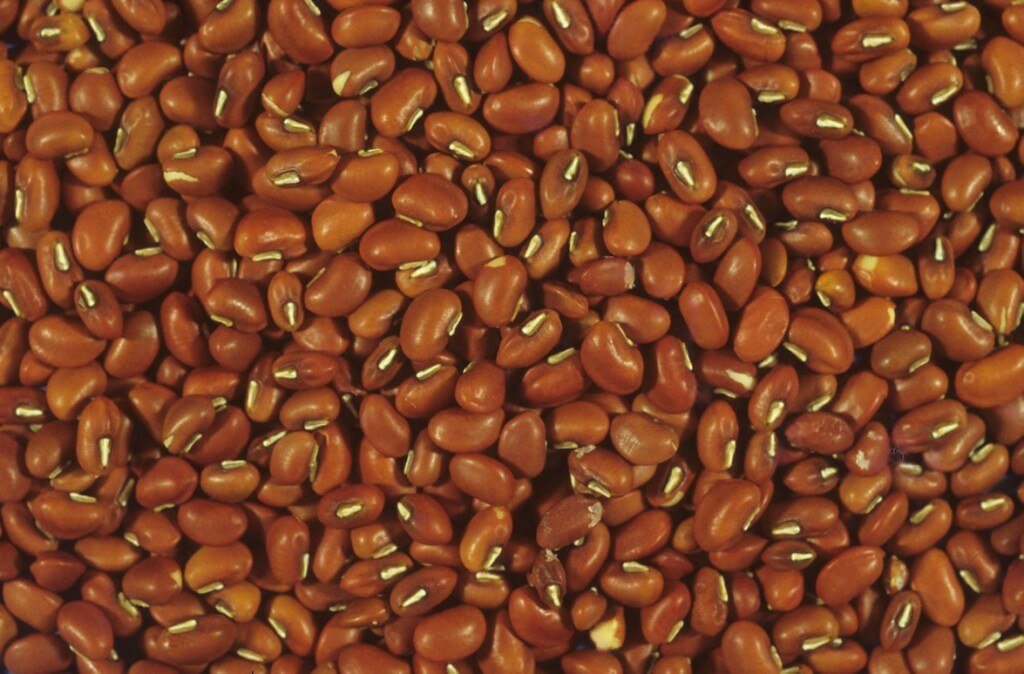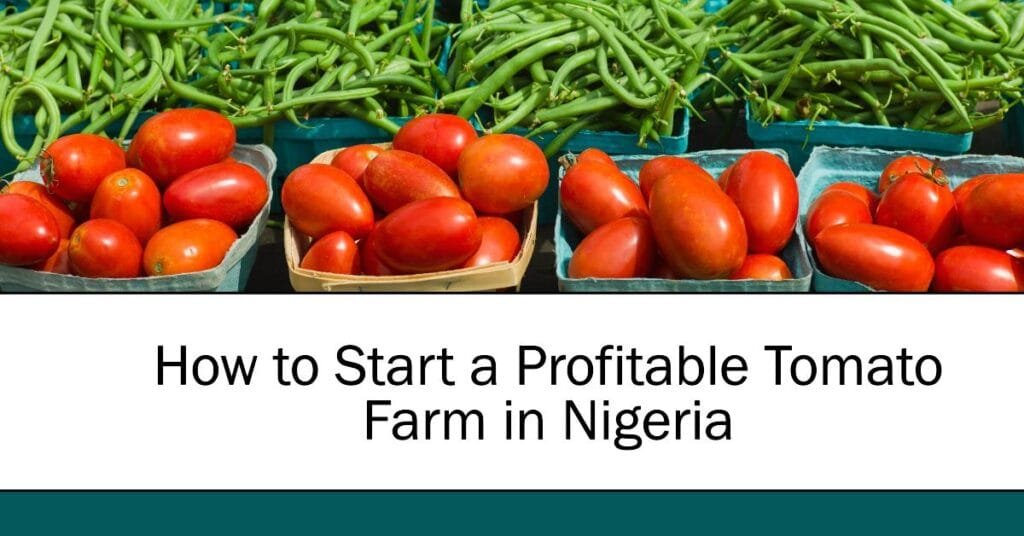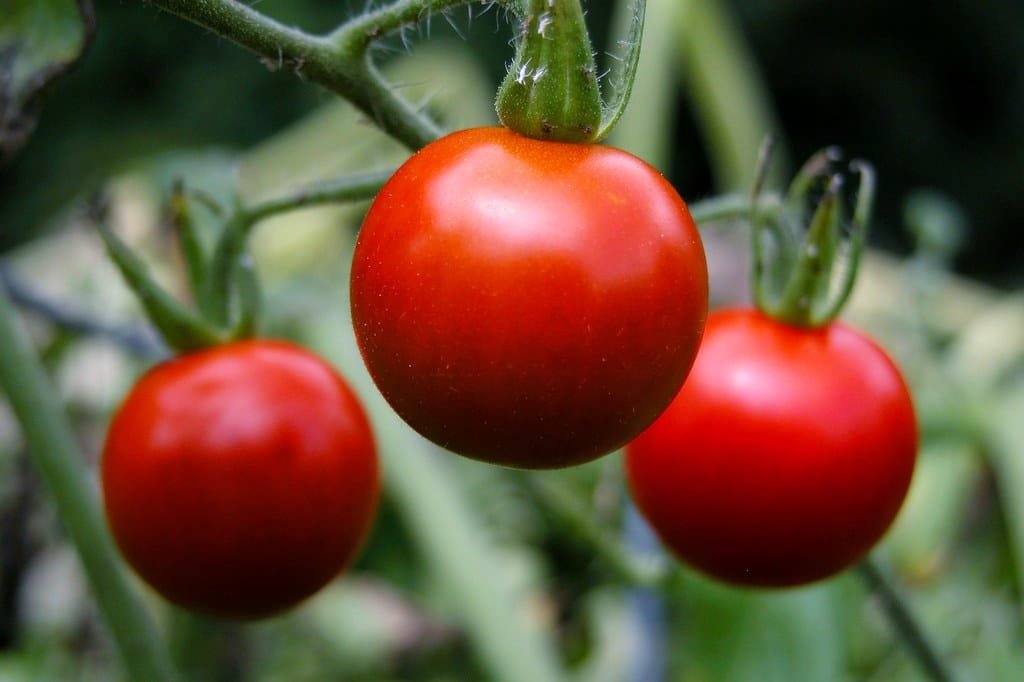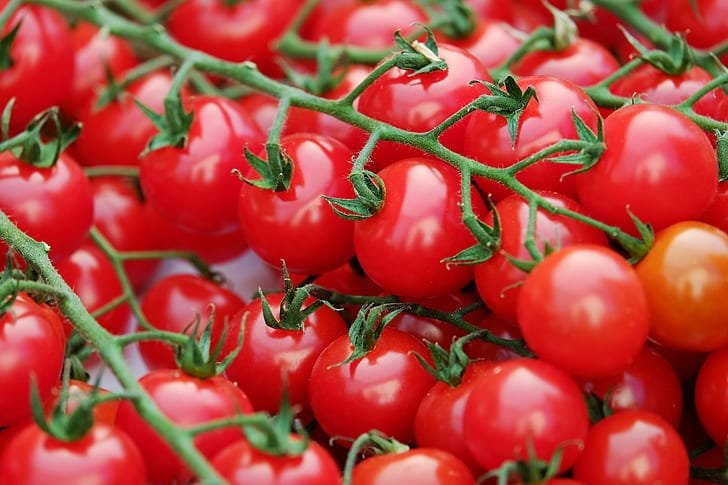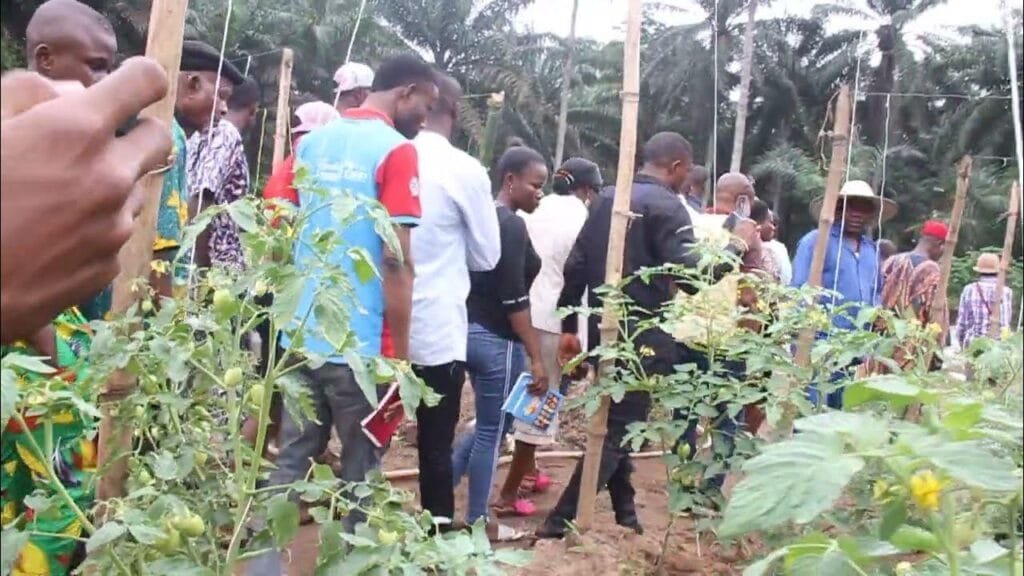Are you ready to boost your farm’s productivity and profits? Whether you’re a seasoned farmer or just starting out, the 40-day hybrid beans variety is a game-changer for anyone looking to grow beans in Nigeria. In this guide, we’ll dive deep into everything you need to know about hybrid beans—what they are, why they’re so popular, and how you can successfully grow them. You won’t want to miss out on this information, so make sure to stick with me until the end!
What Exactly Are Hybrid Beans?
So, what’s the deal with hybrid beans? You’ve probably heard the term thrown around, but let’s break it down clearly. Hybrid beans are the product of crossbreeding two distinct bean varieties. The goal is simple: to combine the best traits of both plants, creating a superior bean with higher yields, improved disease resistance, and faster growth.
Imagine combining the strength of two athletes to create an all-star player—that’s what hybrid beans are all about! These beans aren’t just about size; they’re bred to be tough against pests and diseases, and they often mature much faster than regular beans. This is a huge plus for Nigerian farmers who want to maximize their harvest.
Why Hybrid Beans Are a Big Deal
- High Yield: Hybrid beans produce more beans per plant, meaning more crops and more income for you. What’s better than that, right?
- Speedy Growth: These beans don’t take forever to grow. Some varieties, like the 40-day beans, can mature in as little as 40 days. Imagine getting your harvest much quicker than usual!
- Disease Resistance: Hybrid beans are tougher against diseases like Anthracnose and Rust, so you won’t have to worry as much about using chemicals or dealing with losses.
- Better Nutrition: Bred for higher protein content, hybrid beans are more nutritious, benefiting both your farm’s output and your customers’ health.
The 40-Day Beans Variety: A True Winner for Nigerian Farmers
If there’s one hybrid variety that stands out in Nigeria, it’s the 40-day beans variety. As the name suggests, these beans mature in just about 40 days, which is a major win for farmers looking for quick returns. Let’s break down why this variety has become so popular across the country.
Why Nigerians Love the 40-Day Beans
- Fast Harvest: 40 days from planting to harvest. That’s super fast, right? This gives Nigerian farmers the ability to grow multiple crops in a single year, increasing overall farm productivity.
- Better Prices: Because the beans mature quickly, farmers can get them to market faster. This means selling at peak demand, which can often lead to better prices.
- Less Risk: With Nigeria’s unpredictable weather patterns, having a faster-growing crop can reduce the risk of losing an entire season to drought or excessive rain. The quicker the beans mature, the less time there is for things to go wrong.
The 40-day beans variety isn’t just fast; it’s also a high-quality crop that delivers consistent results. In fact, many Nigerian farmers have shared that switching to this variety has drastically improved their yields and profit margins.
The Origin of Hybrid Beans in Nigeria: Where Did They Come From?
Understanding the origin of hybrid beans, especially the 40-day variety, gives farmers valuable insight into why these beans are such a breakthrough in agriculture. You may be wondering where these beans come from and how they became such an essential crop for Nigerian farmers.
The Birth of Hybrid Beans
Hybrid beans are the result of scientific breeding, specifically crossbreeding two distinct varieties of beans to produce offspring with the best characteristics of both parents. The goal was to combine traits like higher yield, disease resistance, faster growth, and better nutritional value. This technique has been used for decades, but it was more recently perfected with the 40-day beans variety.
The hybridization process can be traced back to research centers and agricultural institutes that focus on improving crop production and resilience. Around the late 20th century, scientists and agricultural experts began working on hybrid crops to solve some of the challenges farmers were facing, such as pest attacks, unpredictable weather conditions, and slow growth cycles. This effort led to the development of a range of hybrid beans, including the 40-day beans variety.
The Introduction of Hybrid Beans in Nigeria
Nigeria, being one of the largest agricultural producers in Africa, was quick to adopt hybrid beans as part of its push to modernize farming practices. Hybrid beans were introduced into Nigeria through agricultural research programs and partnerships with international organizations. These organizations, such as the International Institute of Tropical Agriculture (IITA) and other local agricultural bodies, collaborated to bring hybrid seeds into the country and share their potential benefits with farmers.
The 40-day beans variety was introduced as part of a broader effort to address some of the major challenges faced by Nigerian farmers. With a growing population and increasing demand for food, it became clear that faster-growing, more resilient crops would be key to ensuring food security. Hybrid beans, particularly the 40-day variety, offered a solution by providing quicker harvests, higher yields, and better resistance to pests and diseases.
Why the 40-Day Beans?
Because of their short growth cycle, 40-day beans became particularly popular in Nigeria. This was a strategic choice for Nigerian farmers, given the unpredictable climate patterns and the need for quick, reliable returns on crops. The 40-day beans variety is known for maturing faster than other beans, which means farmers can grow and harvest them multiple times in a single year. This helped increase overall productivity and allowed farmers to keep up with market demand.
The Impact on Nigerian Agriculture
Since their introduction, hybrid beans like the 40-day variety have significantly impacted Nigeria’s agricultural sector. By improving bean yields, reducing the amount of time needed to grow beans, and offering resistance to diseases and pests, these hybrid beans have empowered Nigerian farmers to be more efficient and productive. The introduction of hybrid beans, particularly the 40-day variety, also aligned with Nigeria’s agricultural goals to increase food production and reduce poverty.
Many Nigerian farmers have seen higher yields and faster turnarounds thanks to hybrid beans. As a result, the adoption of these beans has become widespread in various regions of Nigeria, from the north to the south, where beans are an important crop in the farming system. The 40-day beans have especially made an impact in areas where farmers need to maximize their crop output during shorter growing seasons.
Ongoing Research and Improvement
Even though the 40-day beans variety has already proven to be successful in Nigeria, ongoing research continues to improve these hybrid beans. Agricultural researchers are working on creating even more drought-resistant, pest-resistant, and high-yielding varieties to help farmers adapt to changing environmental conditions. This means that in the future, we may see even more varieties of hybrid beans that are better suited to the unique needs of Nigerian farmers.
How to Grow Hybrid Beans in Nigeria: A Step-by-Step Guide
Alright, so now that you know why hybrid beans—especially the 40-day variety—are a solid choice, let’s get into the practical stuff. How do you grow them? What steps do you need to follow to ensure your farm thrives? Here’s a detailed guide to help you plant, care for, and harvest hybrid beans successfully.
Choosing the Best Location for Your Beans
Beans need the right environment to grow. Nigeria’s warm climate is generally ideal, but it’s still important to pay attention to specific factors that influence growth.
- Temperature: Beans thrive in temperatures between 20 °C and 30°C (68-86°F). Nigeria’s climate is perfect for this range, but make sure your beans don’t get too hot or too cold.
- Soil Type: Beans love well-drained soil that’s fertile and rich in organic matter. Sandy loam or loamy soil are the best options. If your soil is too clayey, consider amending it with compost or organic matter to improve drainage.
- Sunlight: Beans need at least 6-8 hours of direct sunlight daily. Find a spot on your farm that gets enough light throughout the day.
Preparing Your Soil for Planting
Before planting hybrid beans, you’ll want to make sure the soil is prepped and ready. Good soil prep is key to giving your beans the best start possible.
- Tilling the Soil: Start by loosening the soil with a manual hoe or a tractor. Tilling helps the beans’ roots spread more easily and allows them to absorb nutrients better.
- Adding Organic Matter: Add some compost or well-rotted manure to the soil. This will improve fertility and boost the overall health of the plants.
- pH Levels: Beans prefer slightly acidic soil, with a pH between 6.0 and 6.5. You can easily test your soil with a basic pH kit, available at most farm supply stores.
Planting Your Hybrid Beans
When planting hybrid beans, timing is everything. In Nigeria, the best time to plant is typically at the start of the rainy season, from March to June. This ensures your beans get enough water to grow.
- Spacing: For proper growth, make sure to space your beans about 2-4 inches apart within the row and keep rows spaced around 12-18 inches apart.
- Depth: Plant the seeds about 1.5-2 inches deep into the soil. This ensures they’re far enough down to avoid drying out but not too deep that they struggle to break through the surface.
Watering and Fertilizing Hybrid Beans
Water and nutrients are essential for the beans’ success.
- Watering: Beans need consistent moisture, especially during their flowering and pod formation stages. But don’t go overboard. Too much water can drown the plants and lead to root rot.
- Fertilization: Hybrid beans benefit from a balanced fertilizer that provides phosphorus, potassium, and trace elements. However, beans are legumes and can fix their nitrogen, so they don’t need as much nitrogen fertilizer.
Managing Weeds and Pests
Weeds and pests are a common problem, but with the right strategies, you can keep them in check.
- Weeds: Remove weeds early and often, especially while the beans are young. Weeds compete for water, nutrients, and sunlight, which can hinder your beans’ growth.
- Pests: Beans are susceptible to pests like aphids and whiteflies, so keep an eye out. Use organic pest control methods, such as neem oil, or go for chemical options if necessary. Just be sure to follow the instructions carefully.
Harvesting Hybrid Beans
Harvesting hybrid beans at the right time is critical to ensuring quality and maximizing your yield.
- Timing: The beans should be ready in about 40 days. You’ll know they’re ready when the pods start turning yellow or brown and feel firm to the touch. Don’t wait too long, though—overripe beans can deteriorate quickly.
- Method: You can harvest by hand or use mechanical harvesters if you’re working with a larger field. Make sure to handle the beans gently to avoid damage.
Where to Get Hybrid Beans (Including the 40-Day Beans Variety) in Nigeria
When you’re ready to grow hybrid beans, one of the first things you’ll need to figure out is where to get your hands on quality seeds. Luckily, there are several reliable sources in Nigeria where you can purchase hybrid beans, including the sought-after 40-day beans variety. Here are the best places to buy hybrid bean seeds and tips on how to ensure you’re getting the best quality.
1. Agricultural Supply Stores
One of the most convenient places to buy hybrid beans is at local agricultural supply stores. These stores specialize in selling farming materials, tools, and seeds for various crops, including hybrid beans. Many of these stores offer a variety of hybrid bean seeds, including the 40-day variety. The benefit of purchasing from agricultural supply stores is that you can easily compare prices, talk to knowledgeable staff, and sometimes even get recommendations on which hybrid beans are best for your region.
- Tip: It’s always a good idea to check if the store offers fresh seeds, as older seeds may not have the same germination rates.
2. Online Seed Retailers
Buying hybrid beans online is easier than ever. Many reputable Nigerian online seed retailers and agricultural marketplaces offer a wide selection of hybrid seeds, including the 40-day beans variety. Some of the popular online platforms include:
- Jumia – Jumia is one of Nigeria’s biggest online marketplaces, and they have a section dedicated to agricultural products. You can find a variety of hybrid beans seeds, and you may even find the 40-day variety here.
- Konga – Like Jumia, Konga offers a range of agricultural products, including hybrid beans. It’s a good option for those who prefer the convenience of online shopping.
- Farmcrowdy – Farmcrowdy is a popular agricultural platform in Nigeria. Though they mostly focus on providing farming support and investments, they also offer hybrid seeds and tools through their website.
- AgroMall – AgroMall is another platform where farmers can find hybrid seeds, agricultural tools, and other resources to help them grow crops successfully.
When shopping online, be sure to check for customer reviews and ratings to ensure the seeds you’re purchasing are from a reputable seller. This way, you can avoid wasting money on low-quality seeds.
- Tip: Always buy from trusted online stores or marketplaces that specialize in agricultural products to ensure that you are getting fresh, high-quality seeds.
3. Government Agricultural Programs and Research Institutes
In Nigeria, several government agricultural programs and research institutes play a crucial role in distributing high-quality hybrid seeds. Institutions like the International Institute of Tropical Agriculture (IITA) and local Agricultural Development Programs (ADPs) often distribute hybrid seeds like the 40-day beans variety to farmers, particularly in rural areas. These programs are often designed to help increase food security and improve farming productivity, which means they can be a great source of seeds for both new and experienced farmers.
These institutes may also offer training programs to help farmers get the best results from hybrid seeds. So, if you’re looking to buy hybrid beans, keep an eye out for any government-sponsored programs or events near you.
- Tip: Contact your local agricultural office to inquire about seed distribution programs in your area.
4. Seed Companies and Distributors
There are also specialized seed companies in Nigeria that focus exclusively on providing high-quality hybrid seeds. Companies like SeedCo, BASF, and Syngenta are some of the global names that distribute hybrid bean seeds through local distributors in Nigeria. These companies offer a range of hybrid bean seeds, including the 40-day variety, that are carefully cultivated and tested for optimal yield and disease resistance.
- Tip: Look for seed companies that offer a guarantee on the quality of their seeds, ensuring that you’re buying the best product for your farm.
5. Local Farmers and Seed Exchanges
Sometimes the best source of seeds comes from fellow farmers. In Nigeria, there are often local seed exchanges or informal trading networks where farmers swap or sell seeds. If you’re in a farming community, consider networking with other farmers to see if you can buy hybrid beans from them. Often, local farmers who have had success growing hybrid beans will be happy to share their seeds with others.
- Tip: Be sure to ask the farmer about the seed variety, their success rate with the beans, and whether the seeds have been properly stored. This can help you avoid buying seeds that are too old or that may not germinate well.
How to Ensure You’re Getting Quality Hybrid Beans Seeds
No matter where you decide to buy your hybrid beans seeds, it’s important to ensure you’re getting quality seeds that will give you the best results. Here are a few tips to help you choose wisely:
- Check the Packaging Date: Make sure the seed packaging shows a recent production date. Fresh seeds have a higher germination rate, and they’re more likely to grow successfully.
- Look for Certifications: Purchase from certified seed suppliers who provide clear information about the origin and quality of their seeds. Certification ensures the seeds have been tested for quality and disease resistance.
- Consider the Seller’s Reputation: Whether buying online or from a local store, always choose a seller with a strong reputation. Check reviews, ratings, and any testimonials from other customers.
- Test the Seeds: If you’re unsure about the seed quality, consider doing a small test batch. Plant a small number of seeds to see how well they germinate before committing to a large order.
Challenges with Growing Hybrid Beans
While hybrid beans offer many benefits, there are a few challenges you might face.
- High Seed Cost: Hybrid seeds tend to be pricier than traditional seeds. This initial cost might be a concern for small-scale farmers, but the increased yield and quicker turnaround time often make up for it.
- Pests: While hybrid beans are resistant to many diseases, pests like locusts can still cause damage. You’ll need to stay on top of pest management to protect your crops.
- Climate Variability: Nigeria’s unpredictable weather can sometimes throw a wrench in things. Droughts, floods, or extreme temperatures can still affect your crop, but planting a fast-growing variety like the 40-day beans gives you a better chance of mitigating these risks.
Conclusion: Why Hybrid Beans Are a Smart Choice for Nigerian Farmers
There’s no doubt about it—hybrid beans, especially the 40-day variety, can transform your farm. They offer quicker harvests, higher yields, and better resistance to pests and diseases. By following best practices in soil preparation, watering, and pest control, you can enjoy the rewards of growing this high-quality crop.
FAQs About Hybrid Beans and the 40-Day Beans Variety in Nigeria
If you’re considering growing hybrid beans or you’re just curious about the 40-day beans variety in Nigeria, you might have some questions. Don’t worry! I’ve got you covered. Below are some frequently asked questions that can help clear things up.
1. What are hybrid beans, and why are they better than regular beans?
Hybrid beans are a result of crossbreeding two different varieties of beans to combine their best qualities. They’re typically better than regular beans because they offer higher yields, faster growth, disease resistance, and often improved nutritional value. In short, hybrid beans are bred for better performance in various conditions, making them a solid choice for farmers looking to get more out of their crops.
2. What makes the 40-day beans variety so popular in Nigeria?
The 40-day beans variety is a hybrid bean that matures in just 40 days, making it one of the fastest-growing bean varieties available. This fast growth is especially popular in Nigeria because it allows farmers to harvest quicker and sell sooner, increasing their profits. Additionally, it helps farmers grow multiple crops within the same year, which boosts productivity and income.
3. How do I plant hybrid beans in Nigeria?
Planting hybrid beans is simple once you have the right conditions. Start by preparing your soil with organic compost and ensure it’s well-drained and fertile. Space the seeds about 2-4 inches apart in rows that are 12-18 inches apart. Be sure to plant during the rainy season (around March to June), as beans need consistent moisture. After planting, water regularly and keep an eye out for pests and weeds.
4. How long does it take for hybrid beans to mature?
The 40-day beans variety matures in just 40 days, but other hybrid beans might take longer—typically anywhere from 60 to 90 days. This makes hybrid beans a great option for farmers who need quick returns on their investment.
5. Do hybrid beans require a lot of water?
While hybrid beans, like the 40-day variety, do need regular watering, they don’t like being waterlogged. Consistent moisture is essential, especially during the flowering and pod-formation stages. Make sure the soil is well-drained to avoid root rot. Water deeply but infrequently to encourage strong root growth.
6. How do I control pests and diseases on hybrid beans?
Hybrid beans are bred for disease resistance, but they can still face pest issues. To control pests, such as aphids or whiteflies, you can use organic pest control methods like neem oil or insecticidal soap. For diseases like rust or Anthracnose, avoid overhead watering and practice crop rotation to prevent recurrence. Regularly inspect your beans for signs of pests or diseases and take action as needed.
7. Can I grow hybrid beans without fertilizers?
Hybrid beans are leguminous plants, meaning they can fix nitrogen from the atmosphere into the soil. This helps them thrive with fewer nitrogen fertilizers. However, to maximize growth, consider using a balanced fertilizer that includes phosphorus and potassium, which beans need for healthy development. Adding organic compost to the soil can also help maintain fertility.
8. What should I do if my hybrid beans don’t grow well?
If your hybrid beans aren’t growing well, check a few things. First, ensure that the soil is fertile and well-drained. If the soil pH is too high or low, adjust it to between 6.0 and 6.5. Second, make sure the beans get enough sunlight—around 6-8 hours per day. Lastly, check for any pests or diseases that could be affecting your plants. Addressing these issues early can help prevent further problems.
9. How do I store my hybrid beans after harvesting?
Once harvested, beans should be allowed to dry completely before storage. Place them in a cool, dry place to avoid mold growth. You can store the dried beans in airtight containers or sacks to keep pests out. If you plan on storing beans for a long time, consider adding desiccants or using sealed bags to maintain freshness and quality.
10. Are hybrid beans more expensive than regular beans?
Yes, hybrid beans are generally more expensive than regular beans due to the costs of breeding them for specific traits like higher yields and disease resistance. However, because hybrid beans produce more beans per plant and grow faster, the higher initial cost is often offset by the increased yield and faster returns.
11. Can I grow hybrid beans if I have limited land?
Absolutely! Hybrid beans are a great option for small-scale farmers. Even if you have a small plot of land, you can still achieve impressive yields with hybrid beans, especially with the 40-day variety. Just use proper spacing, ensure good soil quality, and keep up with watering and pest management to maximize your harvest.
12. Is it worth it to invest in hybrid beans if I’m a beginner farmer?
Yes, hybrid beans are a great investment for beginner farmers. With their faster maturity and higher yields, you’re more likely to see a quick return on your investment. Just be sure to follow proper growing practices, such as correct spacing, watering, and pest control, to ensure the best results.
